'As a little girl I didn't know what sprinting was' - Emma Finucane on her path to becoming world champion
A breakthrough year brought a rainbow jersey for the 21-year-old. She takes Cycling Weekly behind the scenes of her success
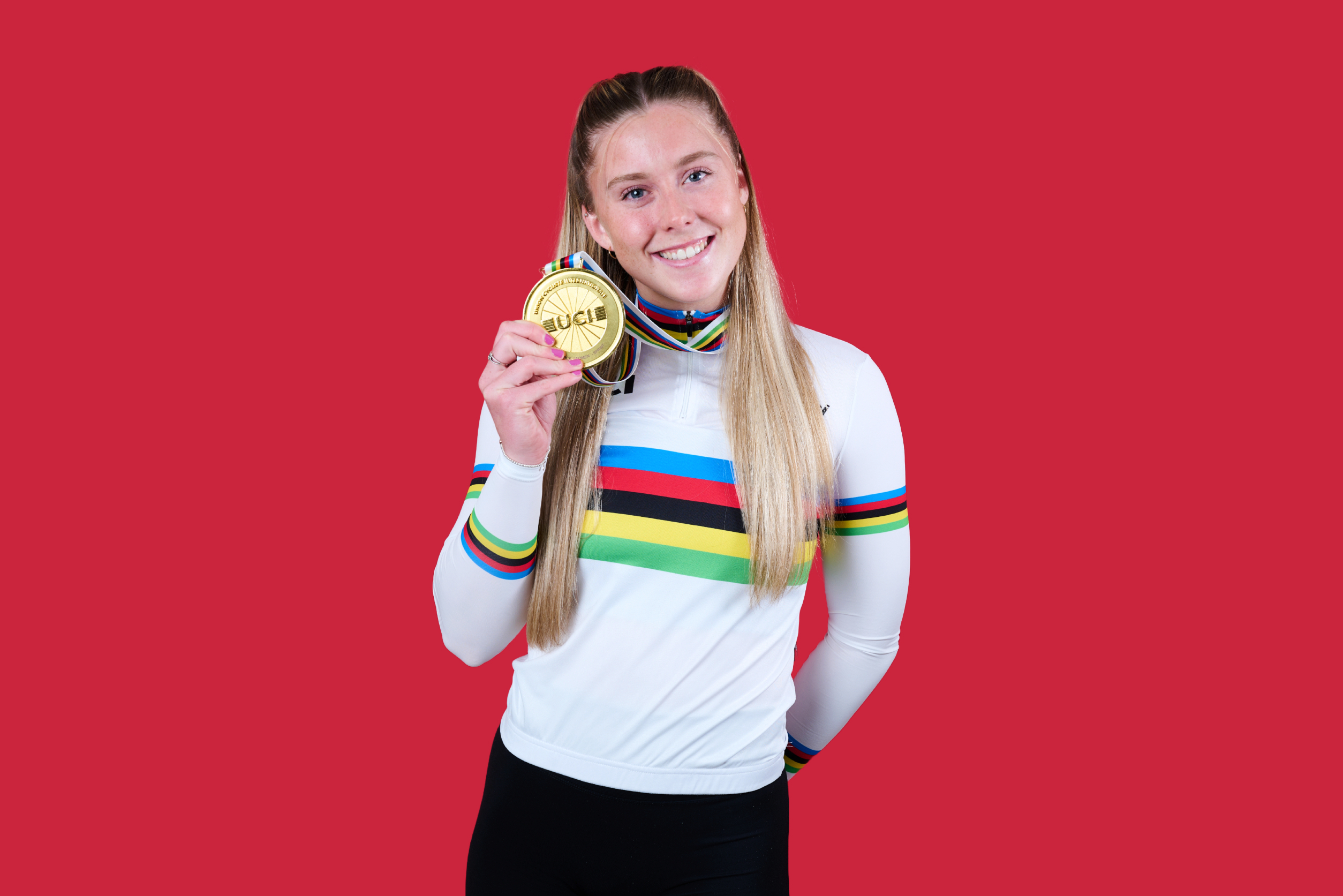

Emma Finucane was awarded Cycling Weekly's Female Rider of the Year for 2023. This exclusive interview originally appeared in the magazine on 7 December. Subscribe now and never miss an issue in 2024.
In the minutes before Emma Finucane became sprint world champion, she stood inside the toilets of Glasgow Velodrome, crying. The situation was overwhelming. One more race, one more win, and the gold medal would be hers. “I’d never been in that position before,” she tells Cycling Weekly. “I was so nervous, but I wanted it so bad. It was such a weird emotion. I felt all week, actually, that I had something weird in me.”
She took a deep breath and staggered back through the pens in the track centre. There, she sat on a chair and waited for her race, an arm’s length from her opponent, Germany’s Lea Sophie Friedrich, the eight-time world champion, who was trailing the Brit 1-0 in a best of three.
“I remember sitting there, and Jack Carlin was next to me. He looked at me and he was like, ‘You’ve f***ing got this, Emma.’” She drives her fist into her palm. “I was like, ‘Yeah, come on, I’ve got this.’”
The race, from start to finish, lasted less than 90 seconds. Finucane led from the gun, rode the entire three laps on the front, and won by half a bike length. Afterwards, she lay down on the track and closed her eyes. At 20 years old, she became the youngest match sprint world champion in almost 50 years.
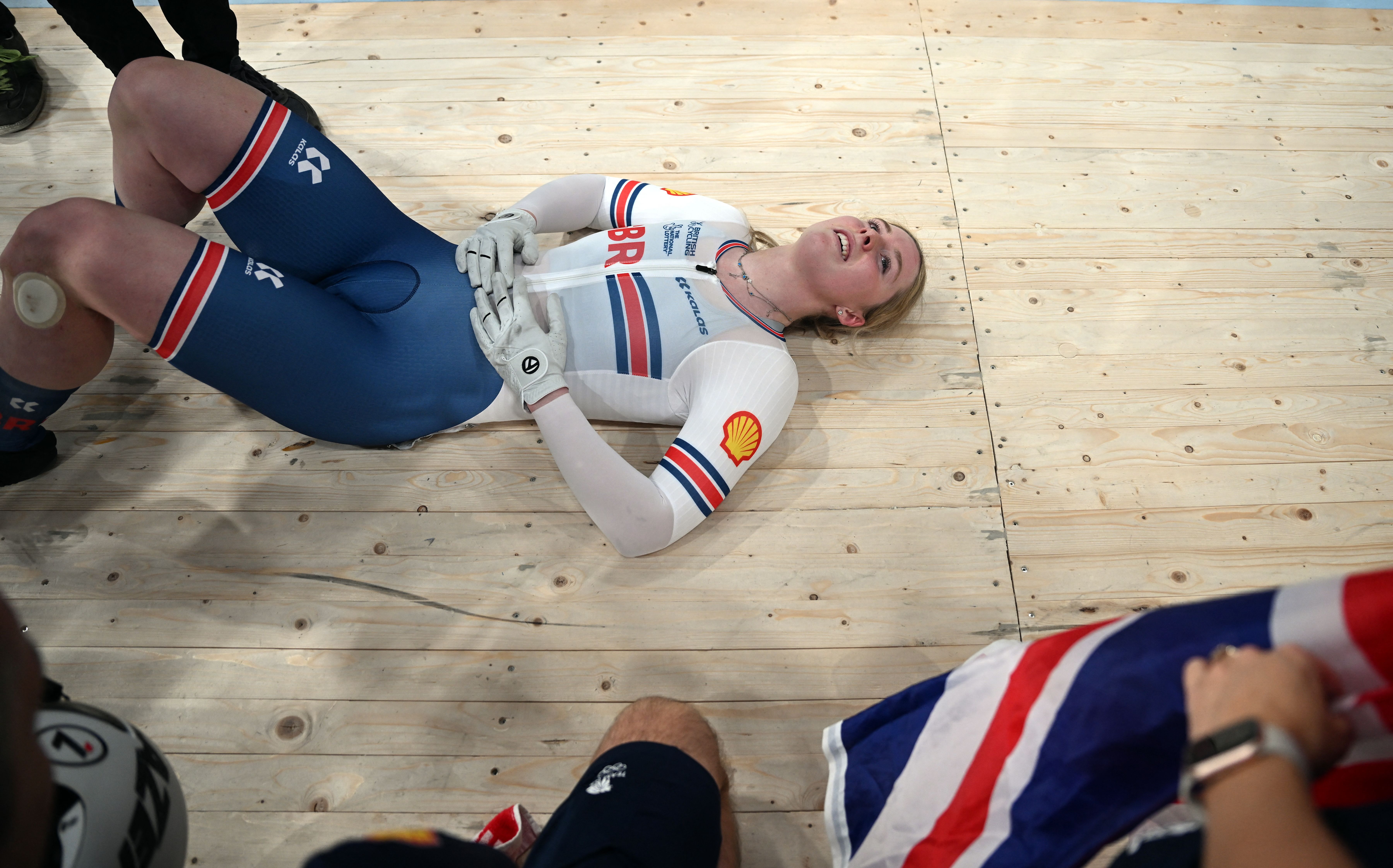
If you are not familiar with the name Emma Finucane, now is probably the time to learn it. The oldest of three siblings, she grew up on an army base in the Welsh town of Carmarthen, and now carries the weighty title of being Britain’s next track sprinting star.
“As a little girl, I didn’t know what sprinting was,” she says, “or that track sprinting was even, for women, achievable or a thing.”
Get The Leadout Newsletter
The latest race content, interviews, features, reviews and expert buying guides, direct to your inbox!
Her first bike had pink tassels at either end of the handlebars. When she was six years old, her mother paid £1 to sign her up to the local club, Towy Riders, who gathered at the concrete velodrome across the road from the family home.
“My parents really wanted us to just have a go at things,” she says. “I started riding around, doing some cones, doing some club sessions, and I kept going back every week.” By the time she was 10, her parents were driving the three-hour round trip to Newport every week for her to train on the nearest indoor track.
This January, Finucane returned to those same wooden boards for the National Track Championships, and won every event in which she competed. “I didn’t think, quite a few years later, I’d win four national titles there, having my family and friends there, so close to home,” she says. “I got quite emotional at the end.”
Those four medals were just the start of what has been a breakthrough year for the Welshwoman. Under the tutelage of coach Kaarle McCulloch, she went on to win two silver medals at the European Championships, her first UCI gold medal at a Nations Cup event in Cairo, and finally, her maiden world title.
As she sits, speaking to Cycling Weekly and sinking into a black recliner inside a tea room at Manchester Velodrome, she holds a highland ‘coo’ soft toy in her lap, one of her spoils from Glasgow’s World Championships. “His name’s Harold,” she smiles. Harold’s name is significant. “Basically,” Finucane starts, “when I was about 10 years old, I had a really quick growth spurt. My bones couldn’t really keep up with me properly, so I guess they just grew outwards.”
She points to her left knee, and a small lump protruding beneath it. “It’s called Osgood-Schlatter [Disease]. When I came onto the [British Cycling] programme, I started doing weights and I started having a problem with it. I got it rechecked, and it’s now tendinitis.
“We were like, ‘We need to come up with a name for it’, because obviously it’s part of me. And we were like, ‘Harold the hump!’, so he’s called Harold. When I won, I called my little coo Harold, because he’s part of me, too.”

Harold the coo’s only clothing is a gold UCI medal, a replica of the one his owner wears proudly around her neck, having kept it on after her photoshoot.
The World Championships were a week of extreme highs and lows for Finucane. Her events started with the team sprint, together with Sophie Capewell and Lauren Bell, and a final against the Germans, the reigning champions.
“It was so, so close in the end,” Finucane recalls. The British trio rode their three laps at world-record pace; unfortunately, the Germans bettered them by seven hundredths of a second. The aftertaste was bittersweet. “Obviously everyone wants to win the rainbow jersey,” Finucane told the press trackside. Six days later, she would have hers, but not without disaster striking first.
The 20-year-old had earmarked the keirin as an opportunity to show her worth as an individual athlete. She won her qualifying heat comfortably, and returned the following day for the quarter-finals, where she crashed out dramatically with Japan’s Mina Sato. “I was so, so angry,” she says bluntly. “I came off and I was so angry.”
The bosses at British Cycling marched to the commissaires to plead for her to be re-inserted into the competition, but the response was a hard no. Finucane’s anger quickly turned to disappointment. “I didn’t expect to cry so much, but I did,” she says.
The sprinter left the velodrome that evening with crushed dreams and a sore neck. She could have gone back to her hotel room to wallow; instead, she went to a local swimming pool, on her physio’s recommendation. “It’s so random,” she laughs. “I was wearing Kaarle’s swimming costume and my physio’s goggles. I was literally lying in the pool doing a bit of backstroke. It was so nice. I think for my head, as well. I didn’t have a phone, I didn’t have anyone to speak to. It was literally me, by myself, in a pool, floating about. So I did that every evening.”
The backstroke worked wonders. Finucane channelled her frustration from the Keirin into her flying 200m qualifier for the match sprint, and set the best time recorded at sea level of 10.234 seconds.
“In that 200, I was someone else,” she says of the beast that flew around the track. She then won every single heat, as she had done at Nationals, knocking out Sato, Germany’s Emma Hinze, and finally Friedrich to win the title. A roar from the crowd, the loudest of the week, swirled around the velodrome.
Some voices, however, were missing. “My mum and dad weren’t there,” Finucane says. “They’d been there literally the whole week, the whole six days.” But the final night was sold out.
The sprinter video-called her parents from her turbo trainer as she warmed down, her eyes red and awash with tears. “My mum was crying, my dad was crying,” she recalls. “My mum is quite an emotional person, but I could tell she was really proud of me. She knows all the choices I’ve made, all the sacrifices. They realised what I had done. It was pretty special.”

When a rider wins a rainbow jersey, heads start to turn. “Obviously, I went into Worlds wanting to win, but I didn’t know I could do it. Then when I did it, I was like, ‘Things are going to change now. People will know who I am’,” Finucane says.
She reaches for her phone and thumbs through her saved images. “Ah, here it is,” she smiles. As she turns the screen around, she reveals a picture of her, dressed in a ball gown, grinning beside a dapper Mark Cavendish at the UCI dinner in Glasgow. “He was like, ‘Yeah I watched you race.’ And I was like, ‘Oh my God, he knows who I am’,” she laughs. “He was like, ‘Please can I have a picture with you?’
“This is going to sound really weird, but he was sitting on the table next to me and I was trying to get a picture. Then I got this one. That was a real pinch-me moment.”
Now, Finucane is set to follow in Cavendish’s footsteps, and become an Olympian herself.
She has kept a scrapbook since she was 10, she explains, with childhood scribbles of her dream to go to the Games. Now, it seems no longer to be a matter of if she will go, but whether she can bring home a medal.
Until then, though, her sole aim is to learn, and become the best track sprinter - and person - she can be. “Reflecting on this year, it’s just been incredible. Every competition I’ve been to, I’ve either gotten better, or I’ve learned so much about myself,” she says. “I’m still learning how to be Emma, the world champion.”

Thank you for reading 20 articles this month* Join now for unlimited access
Enjoy your first month for just £1 / $1 / €1
*Read 5 free articles per month without a subscription

Join now for unlimited access
Try first month for just £1 / $1 / €1

Tom joined Cycling Weekly as a news and features writer in the summer of 2022, having previously contributed as a freelancer. He is fluent in French and Spanish, and holds a master's degree in International Journalism. Since 2020, he has been the host of The TT Podcast, offering race analysis and rider interviews.
An enthusiastic cyclist himself, Tom likes it most when the road goes uphill, and actively seeks out double-figure gradients on his rides. His best result is 28th in a hill-climb competition, albeit out of 40 entrants.
-
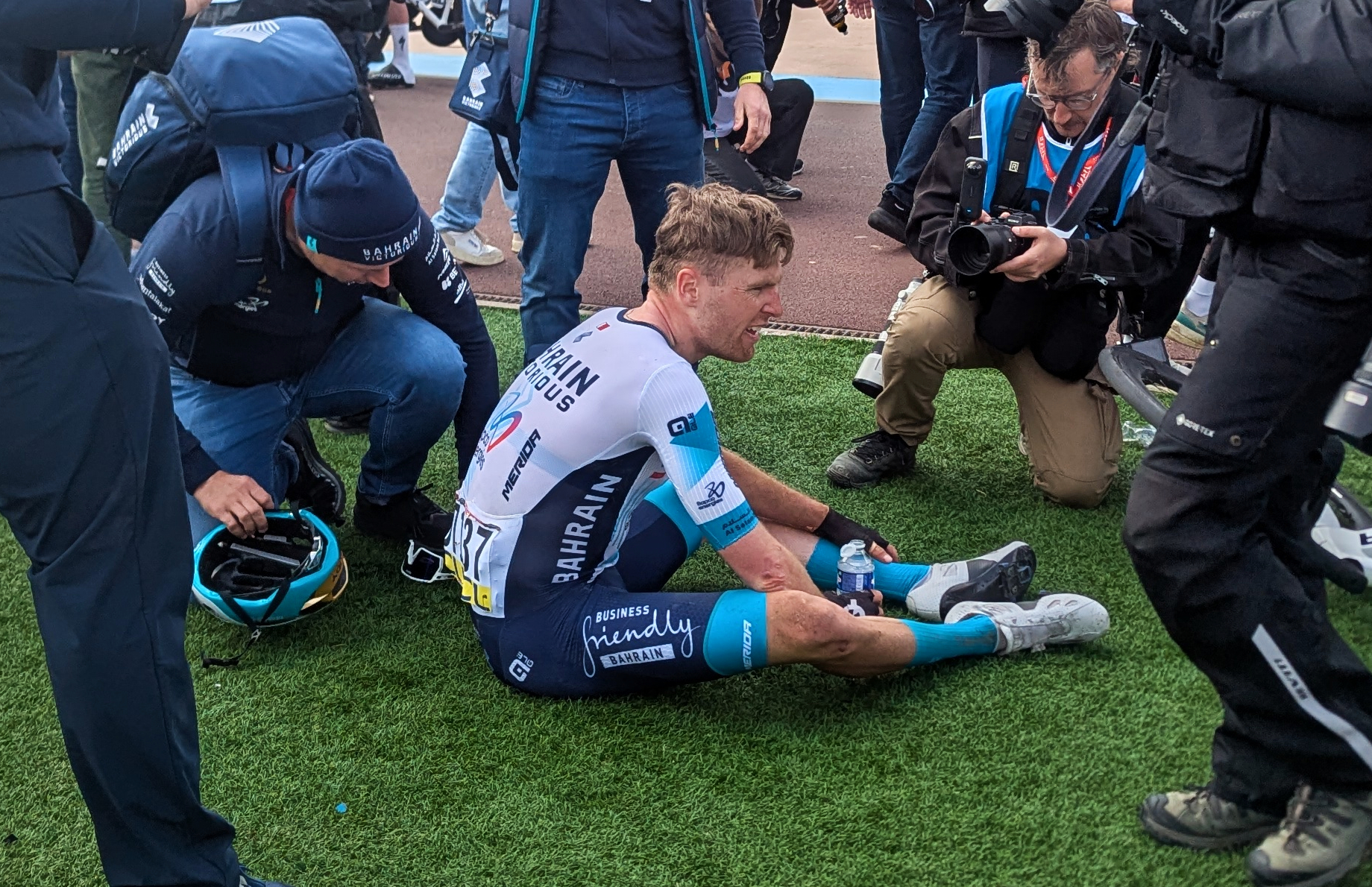 'I'll take a top 10, that's alright in the end' - Fred Wright finishes best of British at Paris-Roubaix
'I'll take a top 10, that's alright in the end' - Fred Wright finishes best of British at Paris-RoubaixBahrain-Victorious rider came back from a mechanical on the Arenberg to place ninth
By Adam Becket Published
-
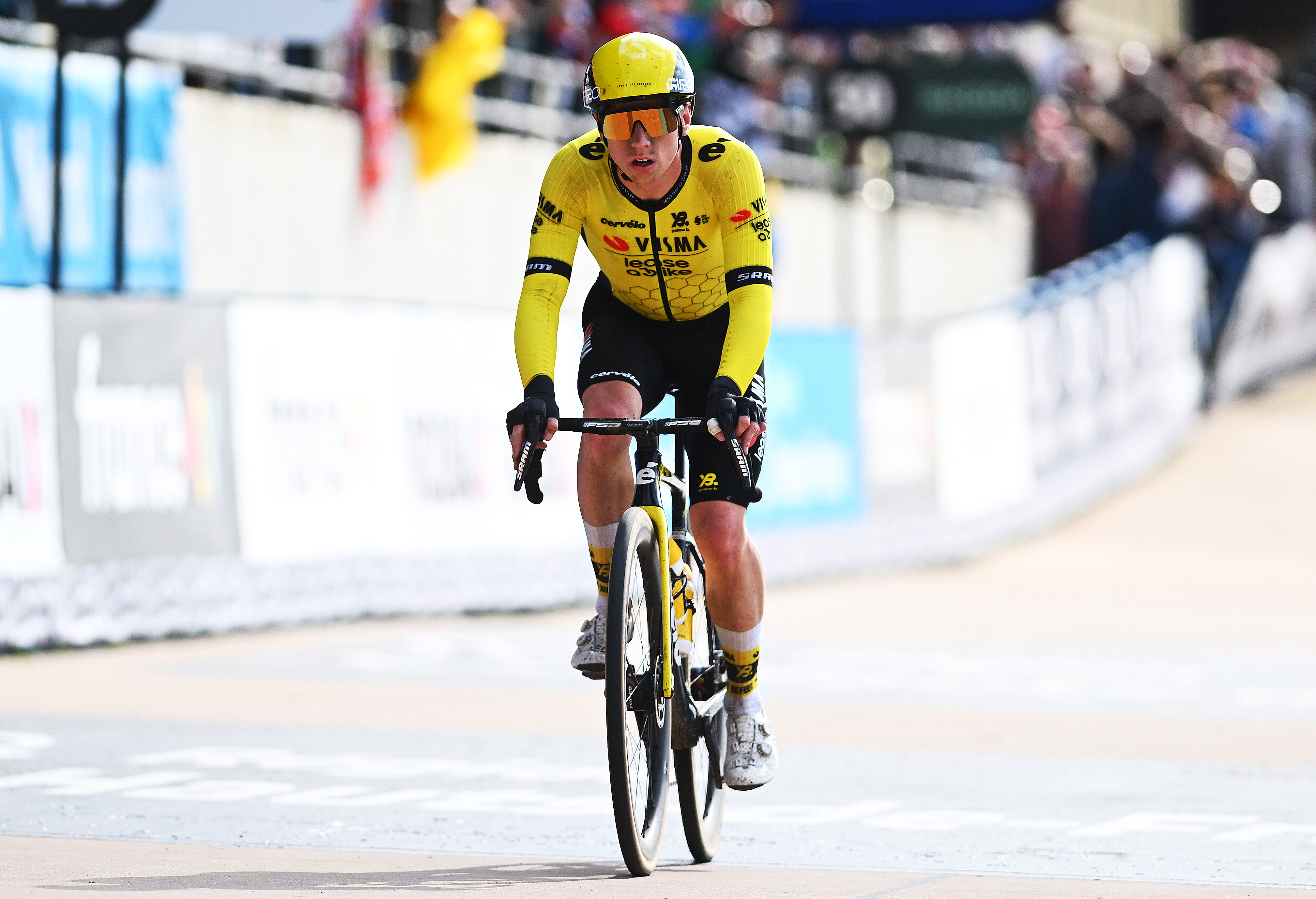 'This is the furthest ride I've actually ever done' - Matthew Brennan lights up Paris-Roubaix at 19 years old
'This is the furthest ride I've actually ever done' - Matthew Brennan lights up Paris-Roubaix at 19 years oldThe day's youngest rider reflects on 'killer' Monument debut
By Tom Davidson Published
-
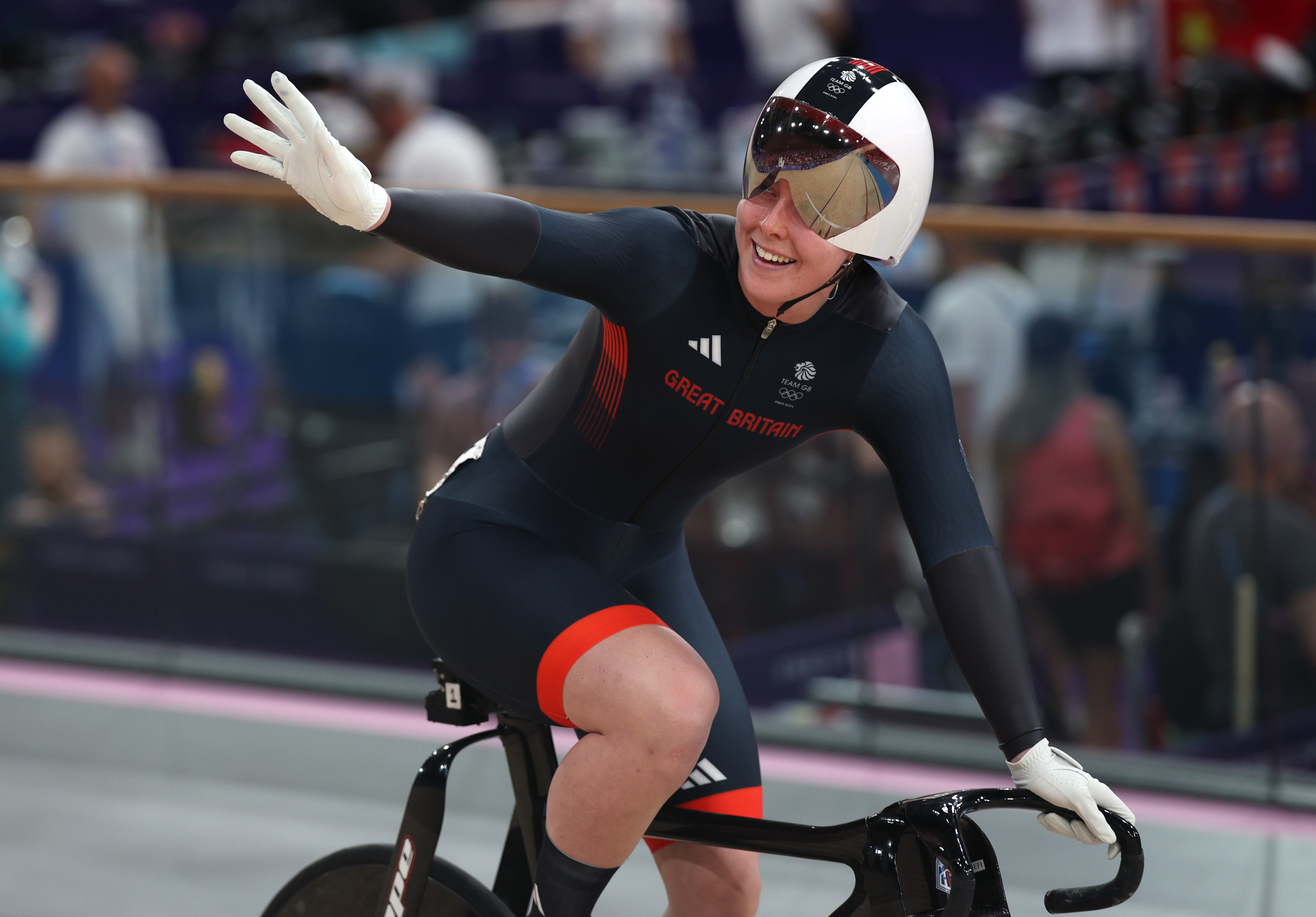 'I want to inspire young girls' - Olympic champion Emma Finucane on being a role model for the next generation
'I want to inspire young girls' - Olympic champion Emma Finucane on being a role model for the next generation22-year-old hopes to encourage new track cyclists in the run-up to the LA Olympics in 2028
By Tom Davidson Published
-
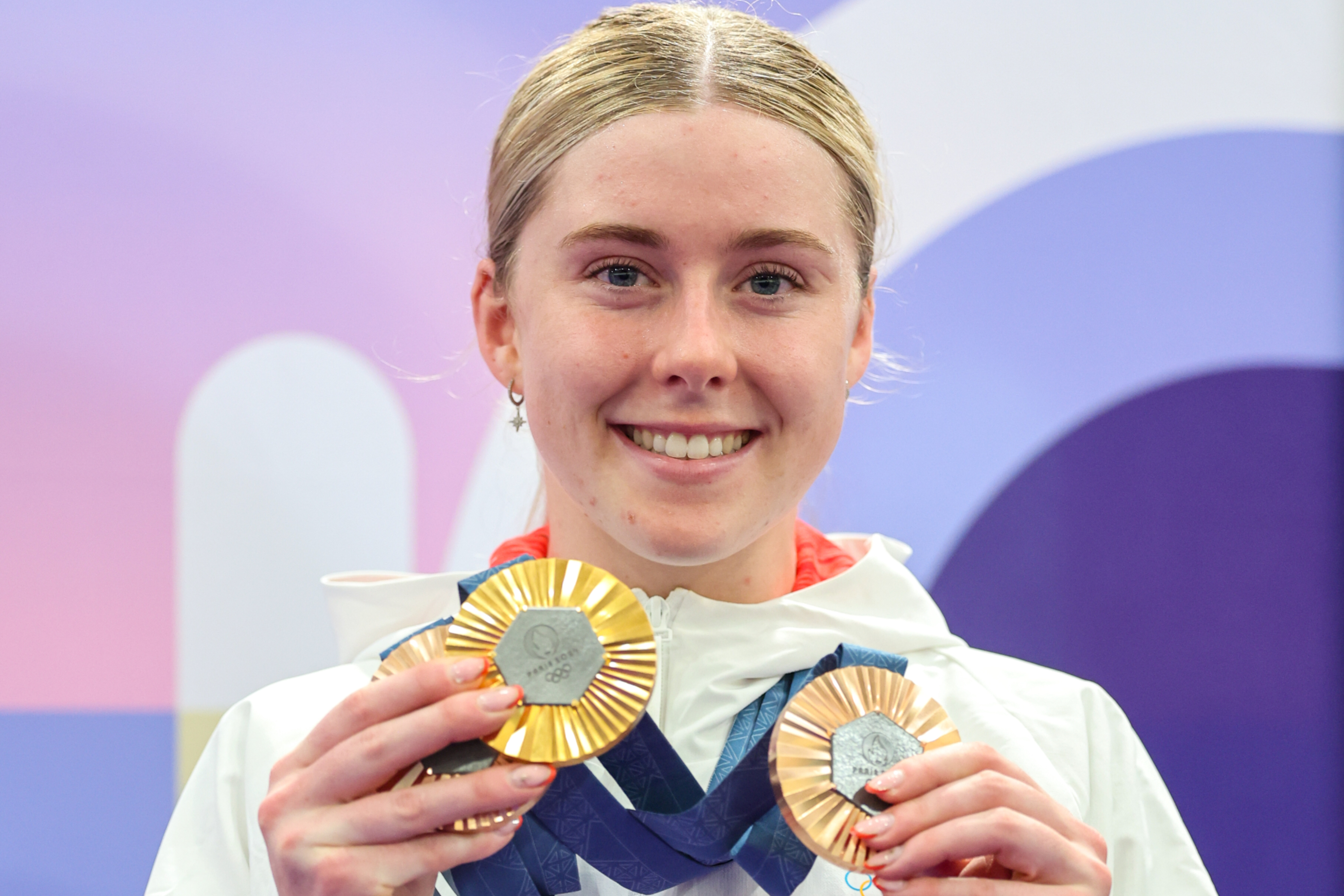 'Superstar' Emma Finucane makes history with three medals at Paris Olympics
'Superstar' Emma Finucane makes history with three medals at Paris Olympics21-year-old leaves her debut Games with a gold and two bronzes
By Tom Davidson Published
-
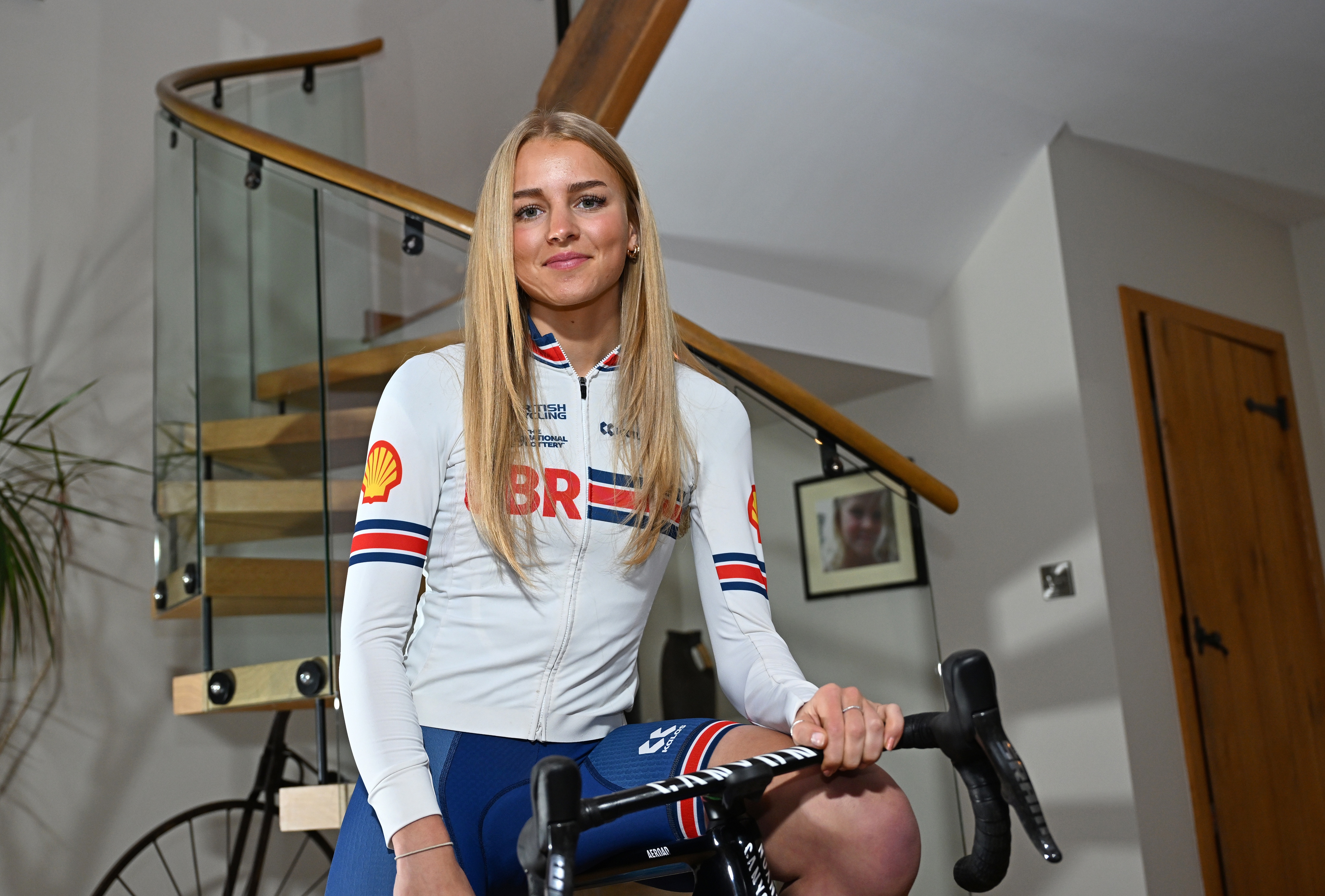 'I didn't expect any of this' - Cat Ferguson on going from school to the WorldTour
'I didn't expect any of this' - Cat Ferguson on going from school to the WorldTourAs a first-year junior, Cat Ferguson stunned everyone’s expectations in 2023, including her own
By Tom Davidson Published
-
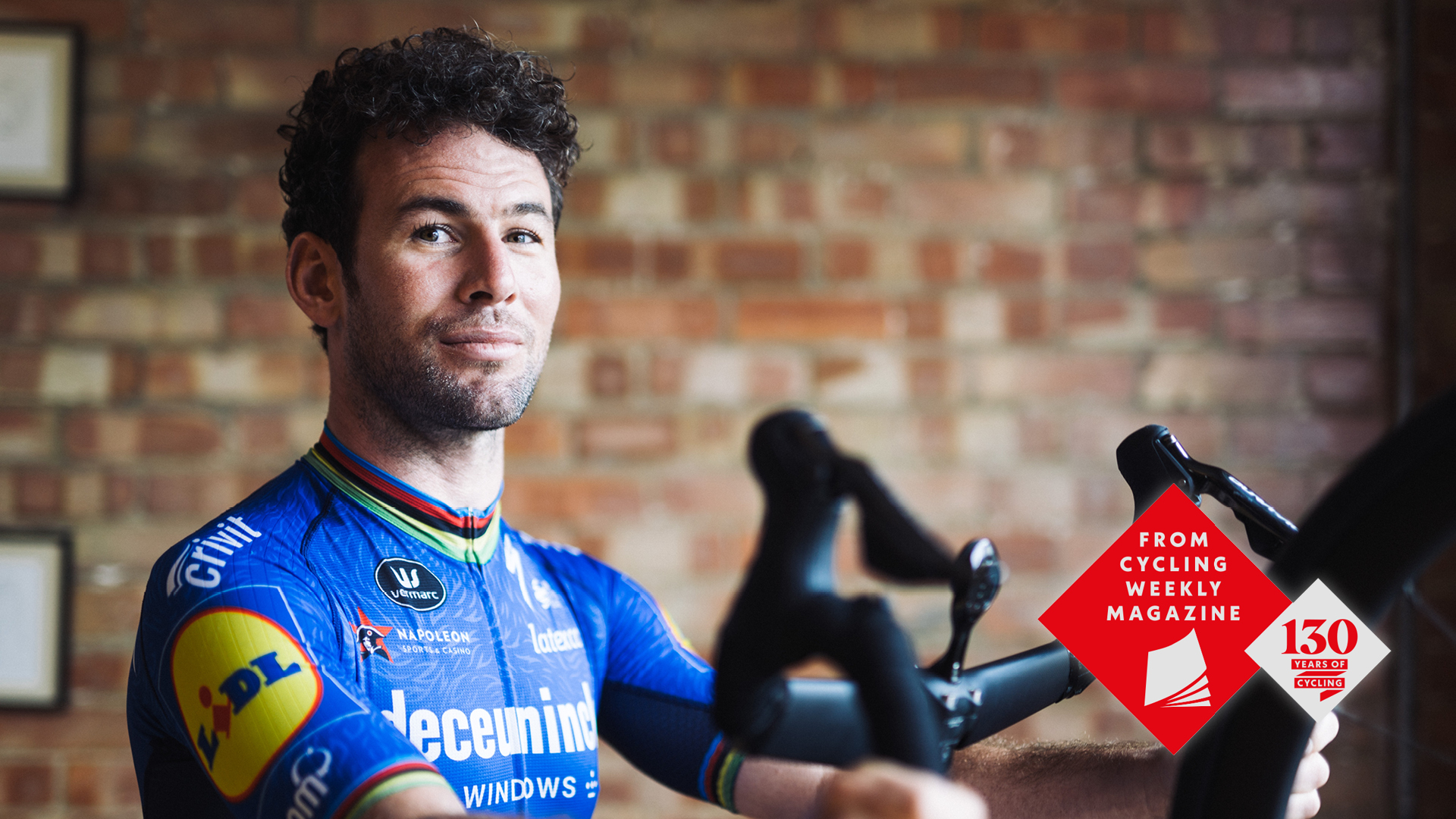 Cycling Weekly Awards: Mark Cavendish wins Male Rider of the Year Award
Cycling Weekly Awards: Mark Cavendish wins Male Rider of the Year AwardThe 'Manx Missile' finally managed to lock onto his old form taking 10 wins in 2021 including four at the Tour de France
By Vern Pitt Published
-
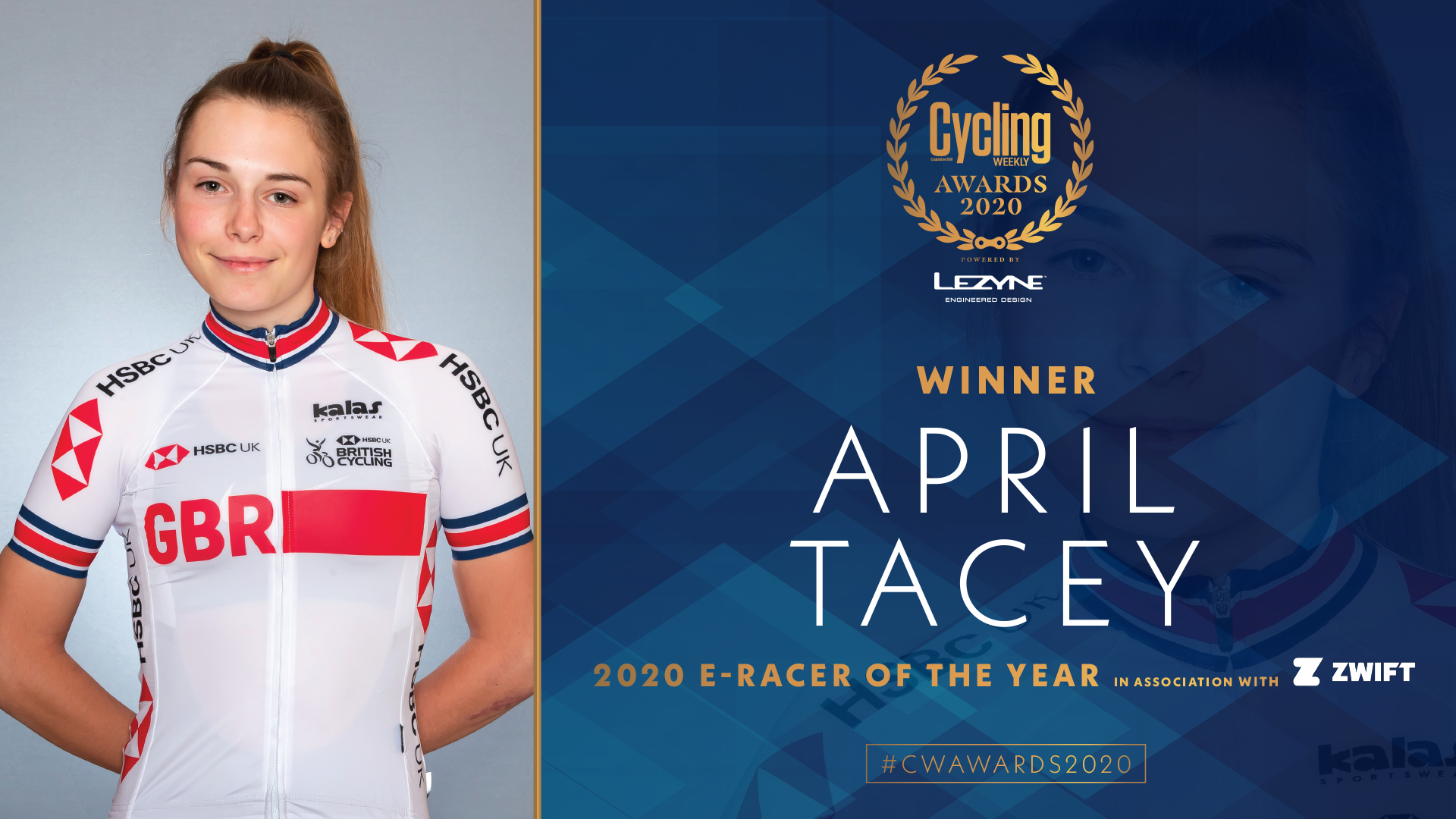 April Tacey: What it takes to win a Virtual Tour de France stage
April Tacey: What it takes to win a Virtual Tour de France stage2020 E-Racer of the Year in association with Zwift: April Tacey
By Victor Alway Published